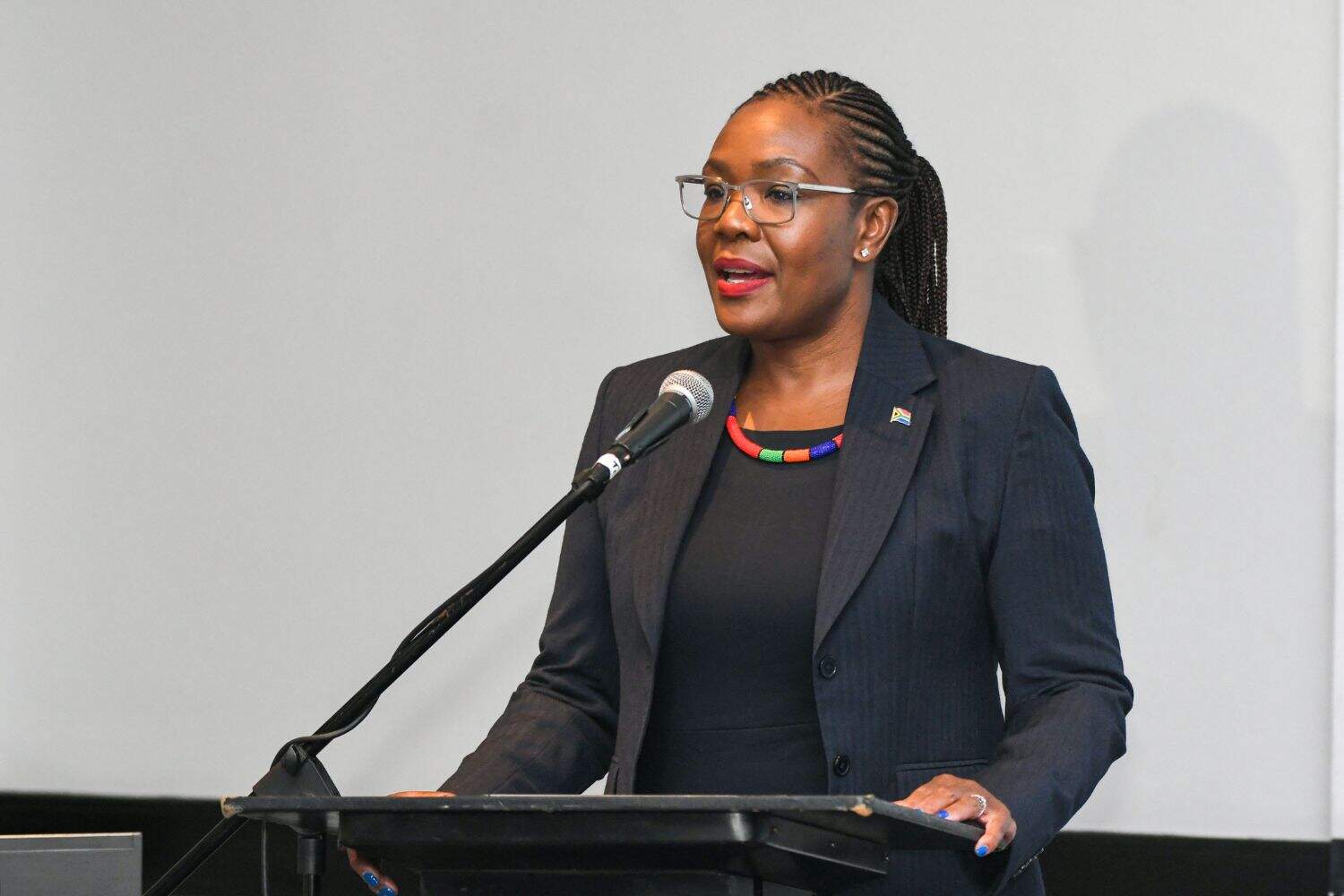SOEs owe the Auditor-General R644 million of the total debt.

The National Treasury has revealed that the Auditor-General is owed close to R2 billion by government institutions, including municipalities and state-owned entities (SOEs).
Officials from Treasury and Auditor-General Tsakani Maluleke appeared before Parliament on Friday to discuss the office’s finances and funding.
The Auditor-General audits and reports on the accounts, financial statements and financial management of all national and provincial departments, Parliament, municipalities, and SOEs.
As a Chapter 9 institution, it operates on a self-funding business model, billing government entities for work performed at public tariffs.
National Treasury crackdown on Auditor-General debt
Treasury’s accountant-general, Shabeer Khan, briefed MPs on interventions aimed at recovering the outstanding debts owed to the Auditor-General.
He told the Standing Committee on the Auditor-General (Scoag) that in December 2024 Treasury wrote to all 257 municipalities in arrears, warning them that non-payment breached the Municipal Finance Management Act (MFMA).
The letters cautioned municipalities that failure to act could lead to Treasury invoking Section 216(2) of the Constitution, which empowers the finance department to withhold funds.
“We have seen that with this initiative already in the month of December that message has seen municipalities paying the Auditor-General in the tune of R460 million,” Khan said.
ALSO READ: Auditor-General responds to ActionSA corruption allegations
He highlighted that a key underlying problem is that many municipalities are operating on unfunded budgets.
“This is really the root cause in municipalities not being able to pay their creditors timeously or deliver services as required.”
Khan explained that after sending the letters, the Auditor-General provided Treasury with a list of municipalities that had either not made payments or failed to enter into payment arrangements.
National Treasury subsequently obtained approval from Finance Minister Enoch Godongwana to withhold the March 2025 funds from municipalities that did not respond proactively.
Watch the meeting:
Conditional release of funds
According to Khan, non-compliant municipalities were warned that their equitable share of funds for local government will be stopped and released only in instalments.
The first instalment must be strictly used to pay the respective creditors.
Khan said the condition would only be fulfilled once municipalities provide proof of payment.
“Should this condition not be met, the second instalment of the equitable share will not be released.”
READ MORE: Auditor-General’s war on waste and corruption yields R4.5bn
Municipalities will also be required to submit a valid repayment agreement.
As of 31 July, the outstanding debt from the eight municipalities whose equitable share funds were withheld stood at R90.6 million — up from R83.6 million in October last year.
Just over R25 million had been collected by 31 July as a result of Treasury’s intervention.
“Whilst we are seeing there’s an improvement, there are other areas that has increased which is a reason for concern,” Khan said.
At least 13 municipalities have entered into payment arrangements with the Auditor-General’s office to the value of R126.2 million.
Auditor-General debt breakdown
Khan further revealed that the Auditor-General’s debt had risen from R1.3 billion to R1.8 billion.
This includes R1 billion in current invoices — R900 million billed in July and R188 million billed in June.
Currently, the municipal sector owes the Chapter 9 institution R437 million, while national and provincial departments owe R155 million and R447 million respectively as of 31 July.
Of the total debt, R74 million is over 60 days overdue and R41 million is over 90 days overdue.
SOEs, listed as “other debtors”, owe the Auditor-General R644 million of the total debt.
Khan indicated that R183 million of the R644 million comprises long-standing debt from entities either liquidated, in business rescue or in financial distress.
The entities include Denel (R82 million), South African Post Office (R63 million), South African Express Airways (R21 million), Pelchem (R11 million), Autopax (R6 million), and Mango Airlines (R2 million).
Khan said it had been recommended to the office to write off the R40 million owed by liquidated SOEs.
“They will have to engage the liquidation process and any amounts that are not recovered through the liquidation process will have to be written off.”
It also emerged that the Auditor-General has asked Treasury to direct funds to settle outstanding debts, but the finance department is not considering this request due to the “constrained fiscus”.
The inability to settle audit fees, according to the Auditor-General, continues to undermine its financial sustainability.
Maluleke said audit fees are negotiated with auditees and they are determined on the risk profile, the audit programme, financial statements, performance information and compliance, among other things.
NOW READ: Municipalities: It’s time to hold mayors to account – AG






